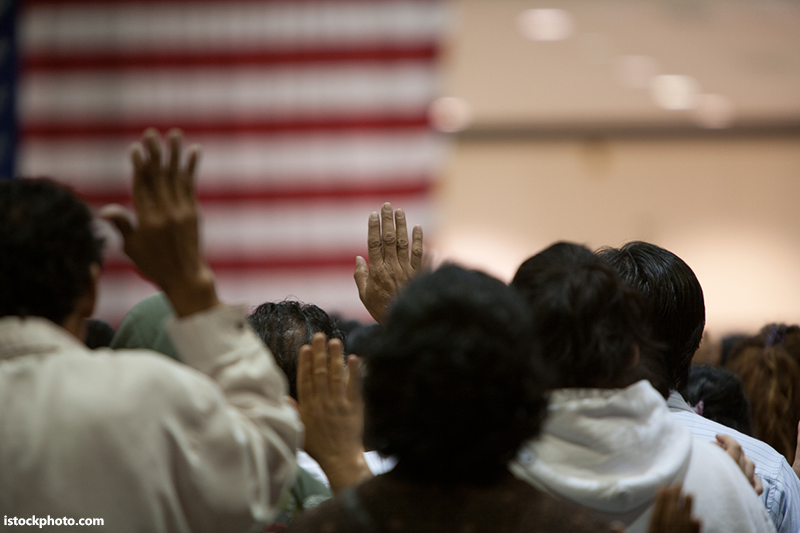
Sixth in a series regarding Panhandle values and quality of life. This reflection is modified but was initially posted in February 2021.
The concept of patriotism is recognized as love or devotion to one’s country. I believe patriotism is cultivated from a love embodied in a family and community that underpins love for one’s country. This cascade of patriotism leads to compatriotism, identifying with a group of others. Patriotism and compatriotism can reside in groups of any size or structure.
Compatriotism is human nature to desire membership in a group; without it, loneliness dominates. The smallest and earliest recorded social group is the family. A February 21, 2020 column in the Atlantic argues forcefully, ”The Nuclear Family Is Still Indispensable.” Confucius said in the Great Learning, “To put the world in order, we must first put the nation in order; to put the nation in order, we must first put the family in order; to put the family in order; we must first cultivate our personal life; we must first set our hearts right.” In contrast, Marx proposed the family as a capitalist construct detrimental to his proposed social order.
The Oath of Allegiance taken at naturalization ceremonies has remained substantially unchanged since 1790. These constitutionally affirmed freedoms and responsibilities sustain a republican form of government. They define, without apology, the idea of citizenship and belonging at every level.
The ruggedness of life in the Texas Panhandle requires a commitment to something larger than self for survival. Regrettably, forces at work in contemporary society often diminish the value and purpose of loving our country or place and subjugate it down a long hierarchical ladder of memberships. Ronald Reagan sought “informed patriotism.” As he left office in 1989, his farewell address noted that the world was changing and “Younger parents aren’t sure that an unambivalent appreciation of America is the right thing to teach modern children.” Absent informed patriotism, something approaching anarchy flourishes. Sovereignty in a family or nation draws diverse people together for a common purpose. It is compatriotism—working together for a shared purpose—not an afterthought but a foundational commitment.
In many communities I visited during the “Your Community, Your University” tours to the Texas Panhandle and the South Plains, the school was the sole fragment beyond the family of something larger than self. Many school districts operate at a level of fiscal austerity unimaginable in countless human organizations. But, the emotional commitment and the sense of belonging (compatriotism) profoundly exceed that found in groups of every stripe. The fear of losing the school’s civic function increases as schools decrease in size. Scarcity creates a furnace of focus. Compatriotism on fire.
Belonging creates a sense of pride and citizenship, which has great staying power. In the Texas Panhandle, high school football rivalries are based on borders between communities and school districts. You belong to one or the other. For over 90 years, the rivalry between the communities, defined by their high school football programs in Memphis and Wellington, has thrived. The competition is nearly a century old. It may be the longest-standing “small school” rivalry in Texas high school football’s storied and gloried history. Community pride, a sense of compatriotism, creates belonging and competition in a helpful, not hurtful, way to communities. Borders allow that. Borders create and allow patriotism.
The idea of globalism works against the idea of borders. Can a person be a “citizen of the world?” This represents a form of cosmopolitanism that is impossible to attain. Sooner or later, as in West Texas, the home team is recognized as the home team. iPhones, the Internet, Snapchat, Twitter, and a host of other devices and networks appear to shrink the world and make it flat, according to Thomas L. Friedman. A potentially dangerous, unattainable utopian illusion diminishing the power of place, the sense of belonging and citizenship leads to positive patriotism. The world is not flat. Citizens belong to bordered settlements with distinctive governments, operated by code, cannon and law. Citizenship is a commitment to that concept, even when it’s flawed by human imperfection in its many manifestations.
Patriotism is never blind obedience. The Oath of Allegiance requires an exercise of free will culminating in citizenship. Exercising patriotism and compatriotism is not the result of being an automaton but a conscious heart-felt commitment to participate.
At WT, students can find avenues of belonging on a complex roadmap of possibilities. Residence halls, classes, social groups, clubs, teams, faith-based and intellectual communities all create a framework that reinforces patriotism’s nourishing power. Patriotism and compatriotism evaporate in a nation, state, region, community or university that disregards the power of belonging, according to Alasdair MacIntyre.
The values of patriotism and compatriotism are the building blocks of a free society. WT will work to reinforce these concepts because they shape an enlightened mind and promote citizenship. That is our job.
Walter V. Wendler is President of West Texas A&M University. His reflections are available at https://walterwendler.com/



